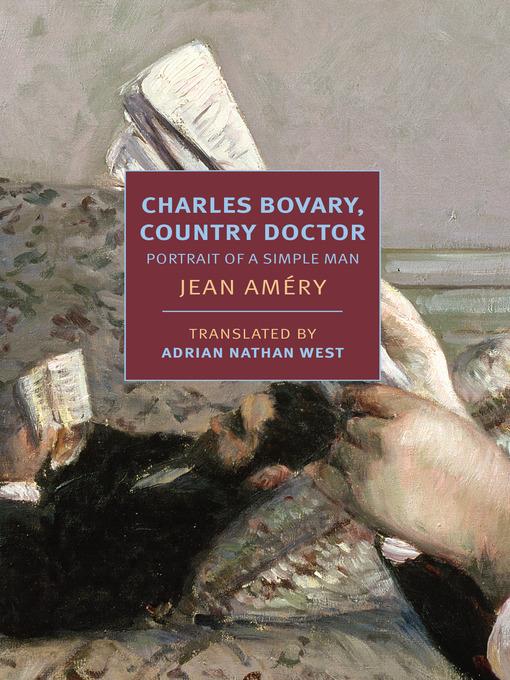
Charles Bovary, Country Doctor
Portrait of a Simple Man
کتاب های مرتبط
- اطلاعات
- نقد و بررسی
- دیدگاه کاربران
نقد و بررسی

July 15, 2018
A reimagined Charles Bovary musters a passionate defense of himself, his wife, Emma, and, seemingly, the entirety of the bourgeoisie in Améry's slender but dense re-examination of Flaubert's Madame Bovary.Essayist Améry, a Holocaust survivor whose biography is called The Philosopher of Auschwitz, produced this, his second work of fiction, in 1978, the year of his death by suicide. This is the first English translation of the work, which follows in the tradition of Jean Rhys' Wide Sargasso Sea and John Gardner's Grendel, stand-alone novels--not prequels or sequels--approaching a prior tale from a point of view more sympathetic to a major character than that taken in the original. Employing the familiar cast of provincial characters from Madame Bovary, Améry constructs an argument by the oft-pitied and somewhat discounted Bovary that he was mistreated and misunderstood by readers and Gustave Flaubert alike. Améry's Charles Bovary is aroused (in all senses of the word) by his defense of the precious Emma and seeks to set the record straight about her treatment of him and, more importantly, about Flaubert's treatment of him and, by extension, of the bourgeois class so condescended to in the underlying work. Améry asks: "What should we take the reality of a figure from art to mean?" The ensuing discussion of the legitimacy of Flaubert's vaunted attempt at realistic fiction takes the forms of imagined courtroom accusations and grief-stricken ruminations. Fantasies of revenge and sex, of a belated sort, mark Améry's assertion of Bovary's mistreatment, which breaks the fourth wall as well as other conventions of polite novelization.Determined readers will appreciate Améry's valiant efforts to rehabilitate Charles Bovary and his conventional cohort in a work which is difficult to categorize and even harder to forget.
COPYRIGHT(2018) Kirkus Reviews, ALL RIGHTS RESERVED.

July 23, 2018
In this polemic novel-essay, Austrian-born philosopher Améry (On Suicide: A Discourse on Voluntary Death) makes a forceful if overheated case that Madame Bovary’s Charles Bovary is ill-served not only by his adulterous wife but also by Gustave Flaubert, the novel’s author. Améry (1912–1978) gives voice to Charles as he mourns the death of Emma Bovary, whom he loves and desires even more after her death. This is a different Charles than the one in Flaubert’s novel: more self-aware, suspicious, poetic, and passionate. He is not always convincing: “I feel others’ lust in my own base body, against all precepts of the bourgeoisie and conjugal honor.” Apart from these monologues, the book includes a critical disquisition, peppered with the occasional abstruse formulation, on the failures of Madame Bovary as a realist novel. First, Améry contends that Flaubert lets Charles live and die “improbably,” that the country doctor’s blind trust beggars belief. Second, he argues that this crime against realism stems from the author’s prejudices against the petite bourgeoisie, and that this crime is in part political: Charles, fictional though he may be, has been denied the rights of liberty, equality, and fraternity “inscribed in the principles of 1789.” Améry’s broadside, however, fails to create a more compelling Charles or successfully indict Flaubert. What it does do is raise thorny questions about an author’s responsibility toward his characters, even or especially the secondary ones, making it an object of interest for certain readers.

























دیدگاه کاربران